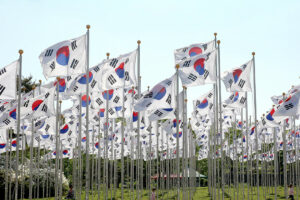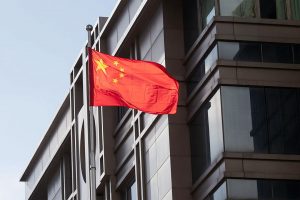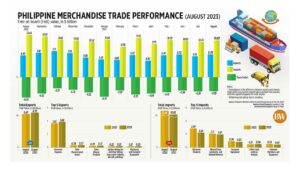Raw material snarls in Korea to ripple across Asia factories

SOUTH KOREA’S trucker strikes are threatening to disrupt wider supply chains in Asia as warehouses fill up with undelivered raw materials used to make everything from clothing to cars.
Petrochemicals have been one of the hardest hit sectors by the week-long action by truck drivers. Prolonged disruptions to logistics are likely to force South Korean companies that supply a diverse array of chemical products to cut production, impacting factories elsewhere in Asia that use the material to make consumer goods.
LG Chem Ltd. and Hanwha Totalenergies Petrochemical Co. warned Monday that they would most likely have to at least partly suspend output at some plants if the strike continues. Hanwha Solutions Corp. has reduced shipments of polyvinyl chloride and polyethylene by 50%, while its solar panel exports have also been affected, the company said Tuesday.
Companies told authorities they are cutting output at Yeosu National Industrial Complex — home to some 297 petrochemical firms — as they have little room for stockpiles, according to a city official.
The situation is concerning as South Korea is a major exporter of the chemical paraxylene to the Chinese textile industry and one of the largest sellers of PVC to Asian factories, according to Parsley Ong, the head of Asia energy and chemicals research at JPMorgan Chase & Co. The nation also exports synthetic latex and acrylonitrile butadiene styrene used in the auto industry to Northeast Asia and elsewhere in the region.
“The trucker strike increases the challenges that chemical producers are already facing from high feedstock costs and a demand slowdown,” Ong said in an e-mailed reply to queries.
The disruption is dealing a further blow to ethylene cracker operators, which transform naphtha from refineries into plastic products. About 20 million tons per annum of ethylene capacity across Asia has already cut operating rates due to a slowdown in the global economy, according to JPMorgan estimates.
Shipping delays may add to the problems. At the port of Busan, wait times for export containers have surged to 11 days, compared with the median dwell time of three days in the past three months, according to logistics intelligence provider Project44.
The logistics snarls may also impact raw materials coming into South Korea. Import containers are waiting 14 days at the port, up from four days before the strikes, according to Project44.
Yard capacity at the world’s seventh-biggest container port is fast approaching 80%, compared with about 70% in May, as container boxes stack up, according to data from the transport ministry Tuesday. South Korea’s HMM Co. said that while its ships are loading and unloading cargo at Busan without major issues, operations will start to be affected should the strike drag on into this week. — Bloomberg




